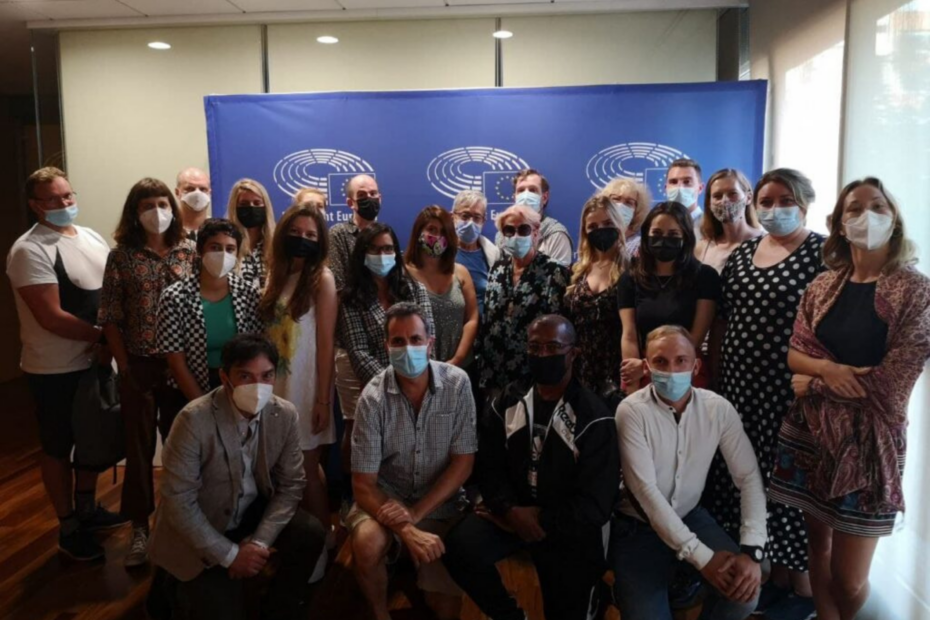INCLUSIVE EUROPE BARCELONA 15TH-18TH SEPTEMBER
The III Public Debates “Intercultural Dialogue and Anti-Discrimination Strategies” within the frame-project Inclusive Europe in Barcelona, 15th-18th September. The idea was to map the main challenges and opportunities to foster intercultural dialogue and create an anti-discrimination strategy for governments, local communities, organizations and citizens, as much as to build a resilient and cohesive society in general. Partner countries representatives exchanged views on anti-discrimination policies, local realities on human rights and inclusion. Besides, the role of the EU and other funds was highlighted, and their priorities for the nearest future to support national efforts on inclusion. The key role of multistakeholder partnerships in the integration processes and inclusion was discussed. The event was organized in Barcelona by AHEAD (Association of Human Rights Educators). Many exciting speakers participated in the discussion, including political representatives, researchers and educators, and leading figures facilitating inclusive policies and integration through different means and mediums. The presentations were delivered by Mr. Xavier Baro (AHEAD, Association of Human Rights Educators, Spain); Ms. Georgina Casas (Coordinator of the Migration Group of the Federation of Organizations for the Global Justice, Spain); Anna-Liza Starkova (Lund University, Sweden); Mr. Adriano Amorosi (Coordinators of Eurocivis); Mr. Antonio Pacheco (CulturFACE, Portugal); Ms. Anna Elia Ramon (CHEDA, Ghana, Spain); Ljubov Lisina (AHEAD); Piter Weisenbacher (Human Rights Institute, Slovakia). The Participants visited the European Institute of the Mediterranean, where they heard fruitful and very detailed experts’ presentations on the national situation with social inclusion and anti-discrimination strategies, which the government of Catalonia implements. Ms. Renate Gross (coordinator of Estonian National Foundation of Civil Society) revealed the content and the main priorities of their fund, successes, and challenges among civil society; Ms. Paula Arce Becerra (Non-Discrimination office of the Barcelona City Council).
The second day of the Conference took place in European Commission European Parliament Office in Barcelona, where the final workshops were done. The keynote speeches were given by representatives of Eurocomission Ms. Esther Pozo Policy Assistant to the Commissioner for Home Affairs of the European Commission, with particular focus on migrants; and Ms. Laura Rahola, Communication Officer of the European Commission office in Barcelona. The day is finished by conclusions and recommendations that participants agreed upon during the conference. All results will be reflected in the European Report Inclusive Europe prepared collectively by the partners.
